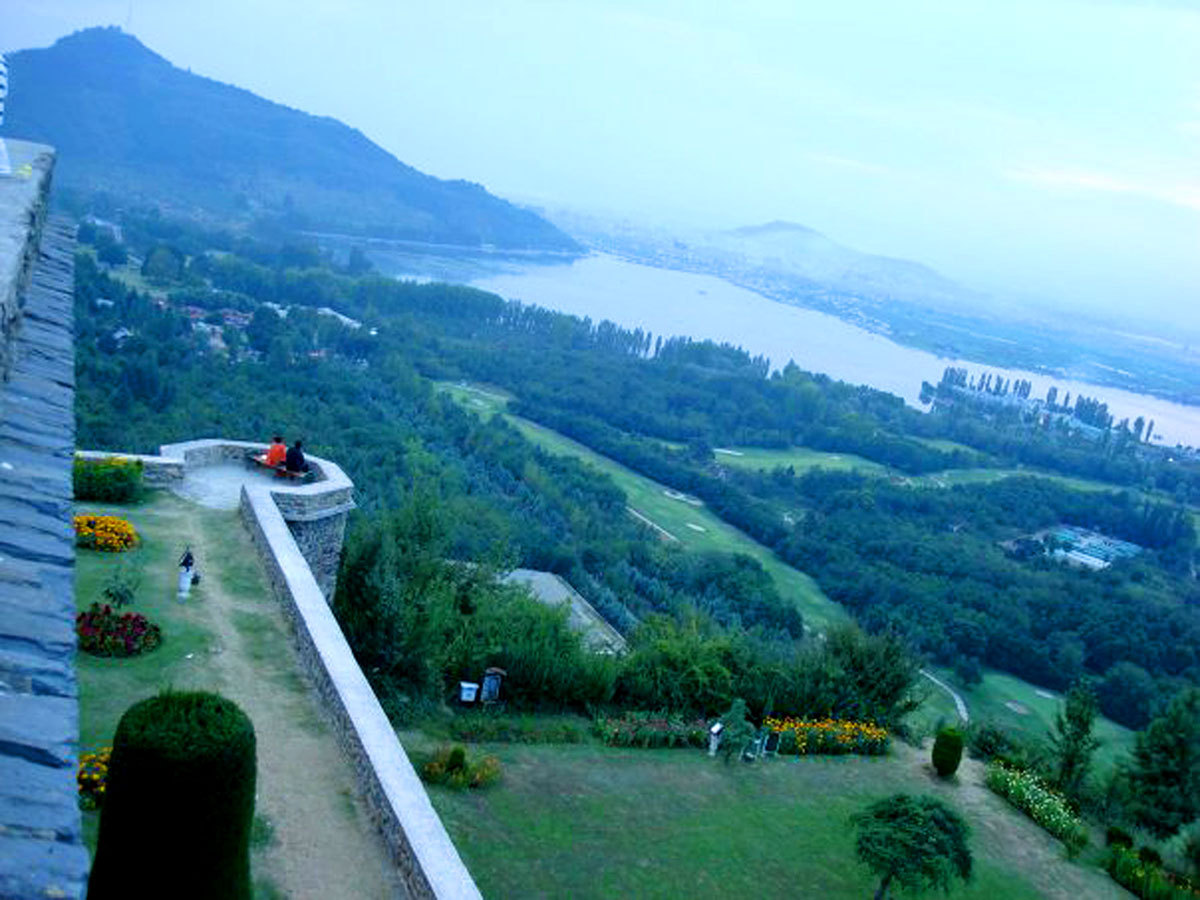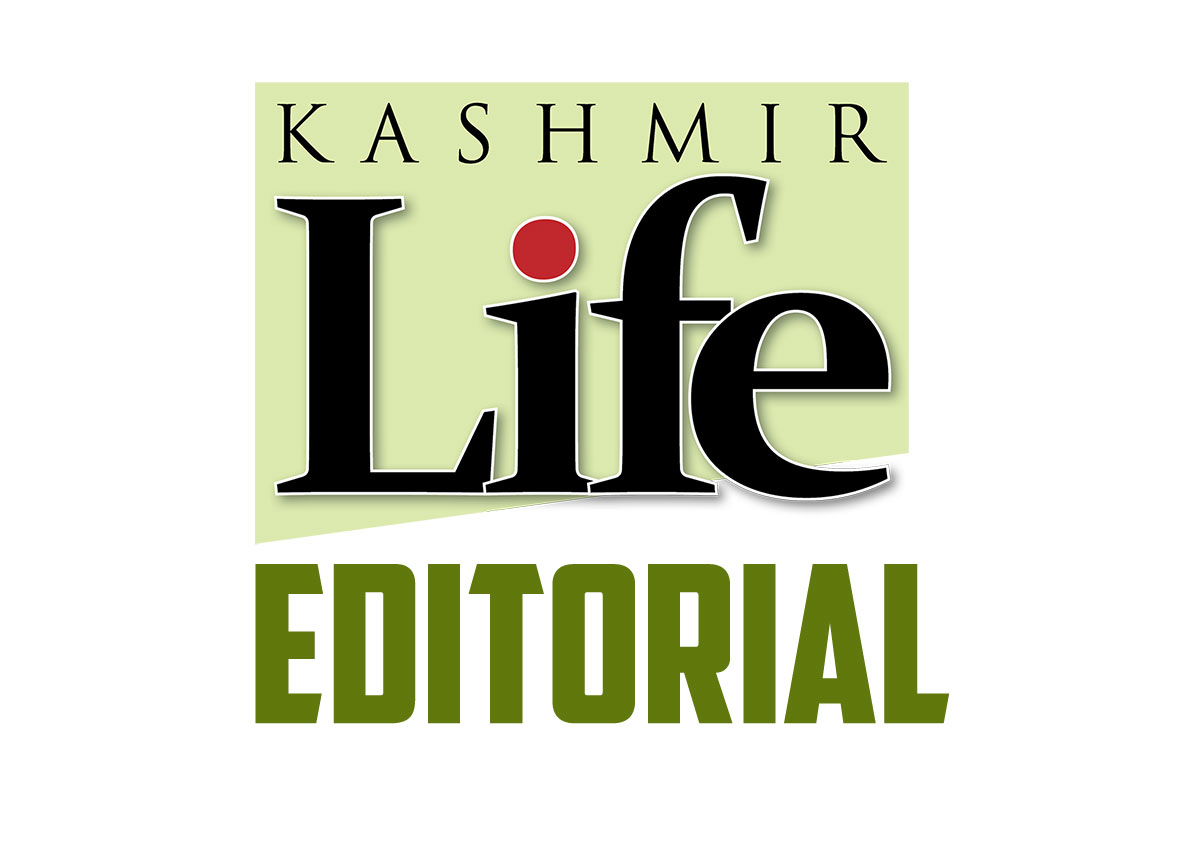Police Public Relations
Dr Syed M Afzal Qadri
The recent incidents of uproar against police in valley, particularly at Shopian and Baramulla, have given indications of the poor Public-Police Relations in the State. The Police is supposed to be the friend of the people and while performing their duties, policemen have to uphold the rule of law on one hand and respect the public sentiment on the other hand. Once this balance is lost, the causality is “administration of Criminal Justice”.
Police is the principal law enforcing agency in the country. Their duty is to promote order and tranquillity in the society. But unfortunately public-police relations are strained not only in this State but in the entire India. It is the primary reason for National Police Commission in its 3rd Report to categorically state that police-public relations are in a very unsatisfactory state. The Commission has attributed several reasons for such as partiality, brutality, and failure to register cognizable offences.
The recent incidents of uproar against police in valley, particularly at Shopian and Baramulla, have given indications of the poor Public-Police Relations in the State. The Police is supposed to be the friend of the people and while performing their duties, policemen have to uphold the rule of law on one hand and respect the public sentiment on the other hand. Once this balance is lost, the causality is “administration of Criminal Justice”.
Police is the principal law enforcing agency in the country. Their duty is to promote order and tranquillity in the society. But unfortunately public-police relations are strained not only in this State but in the entire India. It is the primary reason for National Police Commission in its 3rd Report to categorically state that police-public relations are in a very unsatisfactory state. The Commission has attributed several reasons for such as partiality, brutality, and failure to register cognizable offences.
Prioritize
In a free market economy, protections are a problem. They are barriers and roadblocks. But in places like J&K, one of the fastest growing consumer markets in this corner of the world,such principles lack relevance, at least for the time being.
Babudum(b)
The regrettable performance of some top civil servants during Home Minister’s meeting is symptomatic of a much deeper malaise than just pure incompetence and inefficiency.
First Information Report
Dr Syed M Afzal Qadri
The refusal by the police at Shopian to register an FIR in the rape and murder of Nilofar and her teenage sister-in-law Asiya has tarnished the image of state police. Policing in Kashmir is a highly suspicious exercise. Some unscrupulous and dishonest police officers have maligned the police image to that extent that people have lost faith in the entire system of administration of criminal justice. It is not the personal failure of a one police officer but the system failure which is dangerous to the society. One fails to understand why the police at the initial stage skipped registering a case for the crimes that no system in the world can ignore.
As a student of law, I wonder what were the compelling constraints for not registering a case that triggered a Kashmir wide crisis. The law (read section 154 Code of Criminal Procedure) is clear that as soon as an information with regard to commission of a cognizable offence is given to an officer in charge of a police station (SHO) he shall reduce it in writing and write it faithfully, and a copy is to be given to the informant. If the SHO refuses to accept it the informant can approach the concerned superintendent of the police who if satisfied that a cognizable offence has taken place shall direct to start the investigation.
The refusal by the police at Shopian to register an FIR in the rape and murder of Nilofar and her teenage sister-in-law Asiya has tarnished the image of state police. Policing in Kashmir is a highly suspicious exercise. Some unscrupulous and dishonest police officers have maligned the police image to that extent that people have lost faith in the entire system of administration of criminal justice. It is not the personal failure of a one police officer but the system failure which is dangerous to the society. One fails to understand why the police at the initial stage skipped registering a case for the crimes that no system in the world can ignore.
As a student of law, I wonder what were the compelling constraints for not registering a case that triggered a Kashmir wide crisis. The law (read section 154 Code of Criminal Procedure) is clear that as soon as an information with regard to commission of a cognizable offence is given to an officer in charge of a police station (SHO) he shall reduce it in writing and write it faithfully, and a copy is to be given to the informant. If the SHO refuses to accept it the informant can approach the concerned superintendent of the police who if satisfied that a cognizable offence has taken place shall direct to start the investigation.
Battle of ideas
Undeclared curfews, barricaded roads and preventive detentions are again becoming a routine in Kashmir. In the aftermath of the Shopian crisis,
Demilitarise now
Sheikh Showkat Hussain
Rape and killing of two women in Shopian evoked widespread condemnation throughout the valley of Kashmir. Everyone blames Indian security agencies for this crime and demands probe by international agencies. Establishment of an enquiry commission by state was out rightly rejected on account of previous record of such enquiries being used as a device to cool down outraged sentiments and pave way for shielding of culprits.
While Kashmir was burning for eight continuous days, Indian media and civil society remained a silent spectator. This indifference and silence by media and civil society depicted that it is not only government and security agencies which tend to treat Kashmir as aliens but also its civil society and so called human rights activists have the same attitude towards Kashmir. One should not get surprised over the response of Kashmirs to such an incident. The Incident is part of a pattern that is being pursued for past several years in order to humiliate Kashmir society.
CRISIS MISHANDLED
For the last one week, Kashmir is literally on fire. A young mother and a teenager were found dead in isolated peripheries of Shopian
Cities within Srinagar City
Gull M Wani
Srinagar is the city I have known all through my life. I first came to see it as a small boy with my father and later to join the NCC camp as a student of middle school Panzath Qazigund. It was really fascinating then to come to Srinagar from a really rural setting and be a participant in certain socio-religious activities. As I joined Degree college Anantnag I used to come to Kashmir University to take part in inter-college volley ball tournaments. Interestingly the physical college was located at Naseem Bagh campus where after some time I had to join the department of political Science as a postgraduate student. Today I live in Kashmir University campus as a professor in the same department and as a family man. Srinagar has now so to say become my second home. I do make frequent trips to Qazigund –my ancestral home and it continues to be my political laboratory to understand politics in substantive terms.
Damned and Disgraced
The civil society of Kashmir has seen it all; be it political treachery, ideological immorality, financial corruption
Existential crisis
In the process of emerging as a genuine alternative to the National Conference (NC) in the state politics,
A Gatsby killed Romana
Riyaz Masroor
The fresh spurt in crime rate in Kashmir appears to have two interrelated prongs: the state and the people. As for the state in Kashmir, it lacks popular sanctity for which a host of reasons could be cited. On the other hand, people are suffering from financial insecurity, which is part genuine part self-imposed.
The state here tends to tackle the issue of legitimacy through slogans rather than performance. For example, the slogan of progress, prosperity and development has induced among the masses a wild competition for financial uplift.
Represent J&K, not party
By the time you read this editorial comment, the results of the election to the Indian
Ballot in India – a platter-full of lies
Arshad Malik
India is hot these days, with mercury jumping degrees with every passing day and the heat of the ongoing elections further firing up the emotional thermodynamics of the nation. In India, like elsewhere in democracies, “election” or the exercise of the right to vote is the highest and most extensive form of civilizational discourse that majorly alters the contours of the nation society. But over the decades, long since India gained independence from the British, elections in this country have attained the character of a gambit, where the initiative of the common man – the citizenry – to exercise the ballot power least attributes to the whole process of electing the so-called “representatives of the masses”. Nowadays, it is more about personal vendettas of political parties who have locked horns over power and less about the pure practice of electing a representative government to power.
India is hot these days, with mercury jumping degrees with every passing day and the heat of the ongoing elections further firing up the emotional thermodynamics of the nation. In India, like elsewhere in democracies, “election” or the exercise of the right to vote is the highest and most extensive form of civilizational discourse that majorly alters the contours of the nation society. But over the decades, long since India gained independence from the British, elections in this country have attained the character of a gambit, where the initiative of the common man – the citizenry – to exercise the ballot power least attributes to the whole process of electing the so-called “representatives of the masses”. Nowadays, it is more about personal vendettas of political parties who have locked horns over power and less about the pure practice of electing a representative government to power.
Birth pangs
In a civil society that has an extraordinarily high sense of ethnic, class and nationality issues,
Women in cross fire
In a seminar on Women’s day at Gandhi Bhawan in Kashmir University, I got the opportunity to examine the problems of the women from the perspective of patriarchy and gender bias as built in the idea of nation when some women activists working at grassroots level shared their experiences in the one day seminar.










